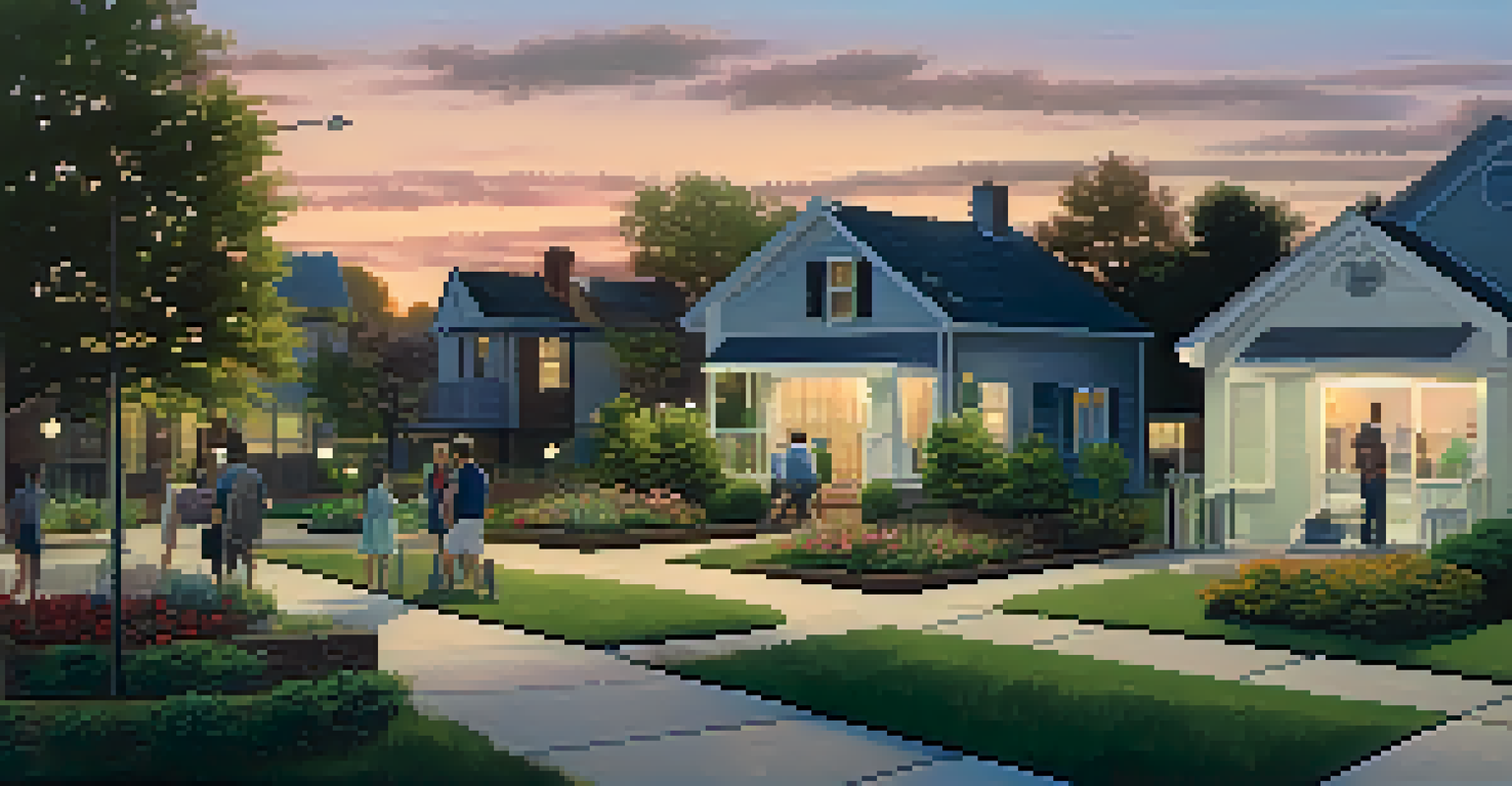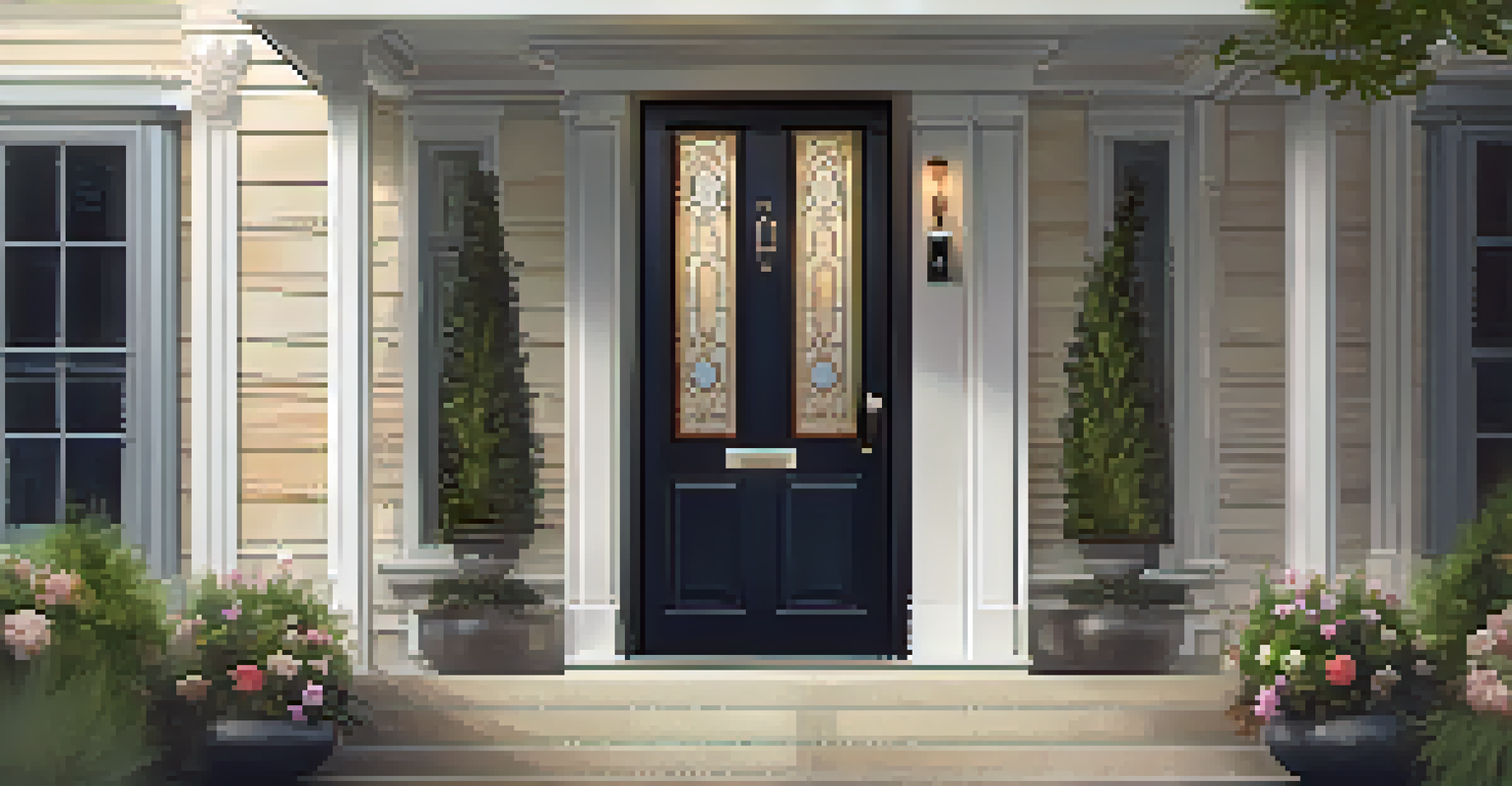Home Security for Renters: Tips and Best Practices

Assessing Your Home's Security Needs
Before diving into security measures, take a moment to evaluate your living situation. Consider factors like the neighborhood's safety record, the type of building you're in, and any past incidents in your area. This assessment will help you identify the areas that require the most attention.
The best way to predict the future is to create it.
Think about your personal habits as well; do you often leave home for extended periods? Are there valuable items that need to be secured? By understanding your unique needs, you can create a tailored security plan that addresses your specific concerns.
Remember, not all security solutions are one-size-fits-all. What works for your friend in a different neighborhood may not be suitable for you. By taking the time to assess your situation, you can make informed decisions about the best security practices for your home.
Communicate with Your Landlord About Security
It's essential to have an open dialogue with your landlord regarding security features. Many rental properties come equipped with basic security measures, but it's worth asking if there are additional options available. For instance, you might inquire about the possibility of installing security cameras or better locks.

Landlords often appreciate proactive tenants who care about their safety and the property's integrity. This conversation could lead to improvements in security that benefit both parties. Plus, it shows you’re invested in maintaining a safe living environment.
Evaluate Your Security Needs
Assessing your living situation and personal habits can help you create a tailored security plan.
If your landlord is unresponsive, consider suggesting a small security upgrade as part of your lease agreement. This could be something simple like a deadbolt installation or a security system, which can enhance safety without imposing a significant burden on your landlord.
Investing in Portable Security Devices
As a renter, you may feel limited in your ability to make permanent changes, but portable security devices can provide peace of mind. Products like door wedges, window alarms, and portable security cameras offer flexible solutions that you can take with you when you move. They are often easy to install and remove, making them perfect for rental situations.
An ounce of prevention is worth a pound of cure.
Consider smart home devices, like video doorbells or smart locks, that can enhance your security without requiring extensive modifications. These technologies not only deter potential intruders but also allow you to monitor your home remotely, which is particularly useful when you’re away.
While it may require a bit of investment upfront, portable security devices can make a significant difference in how secure you feel in your home. Plus, you get the added bonus of taking them with you to your next place!
Establishing Good Habits for Home Security
Beyond devices and upgrades, cultivating good security habits is crucial. Always lock your doors and windows, even when you're home, as many break-ins occur through unlocked entry points. Get into the routine of checking your locks before you leave, ensuring you don’t make it easy for intruders.
Another habit to adopt is being mindful of who you let in. If someone knocks on your door unexpectedly, use a peephole or a camera to verify their identity before opening up. This simple act can prevent unwanted visitors and help you maintain a safer environment.
Communicate with Your Landlord
Open dialogue with your landlord can lead to enhanced security features in your rental property.
Additionally, consider creating a security checklist for when you leave home. This can include tasks like closing windows, setting alarms, and double-checking locks, helping you to consistently secure your home.
Utilizing Neighborhood Watch Programs
Getting involved in your local neighborhood watch program can significantly boost your home security. These programs foster a sense of community and encourage residents to look out for one another. By participating, you're not only taking steps to protect your home but also contributing to a safer environment for your neighbors.
Your neighborhood watch can also provide valuable resources and information about local crime trends, helping you stay informed and vigilant. Plus, it’s a great way to meet your neighbors and build relationships, which can lead to an even stronger support network.
If a neighborhood watch program doesn’t exist in your area, consider starting one. It can be as simple as organizing a meeting with other residents to discuss safety concerns and strategies, creating a united front against crime.
Using Lighting and Landscaping for Security
The right lighting can be a powerful deterrent against potential intruders. Ensure that entryways, driveways, and yards are well-lit, especially at night. Motion-sensor lights are particularly effective, as they illuminate areas only when someone approaches, catching the attention of passersby.
Incorporating landscaping into your security plan can also be beneficial. Keep bushes and trees trimmed to eliminate hiding spots for intruders. Additionally, consider using thorny plants near windows as a natural barrier, which can discourage unwanted access.
Establish Good Security Habits
Cultivating consistent security habits, like locking doors and checking identities, is crucial for home safety.
By combining effective lighting with thoughtful landscaping, you can create an environment that feels both welcoming and secure. It’s all about striking the right balance between aesthetics and safety.
Knowing Emergency Contacts and Resources
In the unfortunate event of a break-in or emergency, knowing who to contact can make all the difference. Keep a list of local emergency numbers, including your landlord, police, and nearby friends or family who can lend support. Having this information readily available can save valuable time when you need it most.
Additionally, familiarize yourself with your building’s emergency procedures. Understanding how to evacuate safely and knowing the location of fire extinguishers or emergency exits can be crucial in a crisis. If your building lacks a clear emergency plan, consider suggesting that your landlord develop one for the benefit of all tenants.

Lastly, don’t underestimate the power of community resources. Local organizations often offer safety workshops or can connect you with additional support services, making them invaluable assets in your security strategy.